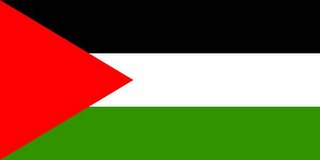A letter to the Harakat al-Muqawama al-Islamiyya (Hamas)
 We, Cincinnati Change, congratulate the Palestinian people in the Gaza Strip and the West Bank, including East Jerusalem who participated in free, fair and secure elections.
We, Cincinnati Change, congratulate the Palestinian people in the Gaza Strip and the West Bank, including East Jerusalem who participated in free, fair and secure elections.Palestinians voted on January 25, 2006 in large numbers, underlining their commitment to build their democracy and achieve self-determination. The Palestinian Legislative Council (PLC) is composed of 132 seats: 66 elected in national lists and the other 66 elected in districts.
Final results show that Hamas won the election, with 74 seats to the ruling-Fatah's 45, providing Hamas with the majority of seats and the ability to form a majority government on their own. "Hamas won 44 percent of the popular vote but 56 percent of the seats, while Fatah won 42 percent of the popular vote but only 34 percent of the seats." according to the New York Times [1].
Analysis of election results indicates that both factions won seats in proportion to their shares of the vote for the 66 list seats. Hamas is overrepresented in the 66 district seats because it nominated more strategically than Fatah and did not have to compete with third parties and independents for the same voters' support.[2]
One can add that 22.4% of the Palestinian people did not vote (the turnout was 77.6%). These include four categories: Those who support Islamic Jihad who boycotted the elections, a group of liberals who did not find a democratic- liberal list to vote for among those running, and a group of average citizens who do not believe either in elections, or in the possibility of democratic transformation under occupation.
We draw the conclusion from bove that is very important: 55% of the voters are not every day supporters of Hamas. Moreover, adding to them something like 15% who are not supportive of Islamic Jihad, would give a bigger majority who are not supportive of Hamas. This conclusion is compatible with the results of various public opinion polls over the last five years showing a constant Palestine majority of 70% who support peace with Israel.
The Palestinian Authority ensured security on election day, showing that the insecurity of the recent past can be overcome. And the Palestinian Central Election Commission, with the support of the United Nations and the international community, did an excellent job in organizing the voting.
We congratulate President Abbas, the Palestinian Authority and the Palestinian people on this achievement. We thank the electoral observers from all over the world for their contributions. And we respect the decision of the Palestinian people.
We know that the election outcome is a watershed in Palestinian political history. Discussions have begun on forming a government. This is a sensitive moment indeed.
President Abbas, speaking after the election, underlined the obligations and responsibilities that will fall on any new government, including, in his words, “Palestinian-Israeli agreements starting with the Oslo Accords and the Arab Summit resolutions and ending with the resolutions that have been agreed upon by the international community, in particular the roadmap as the sole framework that is being posed now for implementation".
"Palestinians are no strangers to compromise. In the 1993 Oslo Accords, we agreed to recognize Israeli sovereignty over 78 percent of historic Palestine and to establish a Palestinian state on only 22 percent." -- Saeb Erekat, Chief Palestinian negotiator, 5 August 2000
We believe that the clear majority of the Palestinian people do not want to pursue violence or terrorism.
We believe that the new government must accept that Israel, which is a member state of the United Nations, has a right to exist as a State, alongside the State of Palestine that Palestinians deserve and want to achieve.
We believe in a two-state solution as the ONLY viable settlement of this conflict.
Hamas's 1988 charter calls for the destruction of the State of Israel, as well as of any secular Palestinian government, and the creation of an Islamic Republic in their place. [3] Abdel Aziz al-Rantissi, one of its co-founders, stated that the movement's goal is "to remove Israel from the map." [4].
We have studied and published the thirty-six articles of the Covenant detail the movement's Islamist beliefs regarding the primacy of Islam in all aspects of life. The Covenant identifies Hamas as the Muslim Brotherhood in Palestine and considers its members to be Muslims who "fear God and raise the banner of Jihad in the face of the oppressors."
We observe that the group has observed a hudna, or truce, since an attack on the Israeli southern town of Beersheba in August 2004, in which 15 people were killed and 125 wounded, violating it once in August 2005 with an attack on the same bus station, wounding seven, and in several attacks on Israeli motorists - killing six in several attacks [5], [6].
We have reviewed an interview in Russian newspaper Nezavisimaya Gazeta , published on February 13, 2006, Hamas leader Khaled Mashal declared that Hamas would stop armed struggle against Israel if it recognized the 1967 borders and withdrew itself from all Palestinian occupied territories (including the West Bank and East Jerusalem).
However, we are disturbed that Mashal continues to refuse to acknowledge the Road map for peace, adopted by the Quartet in June 2003, "since nobody respects it". The Road map projected the establishment of an independent Palestinian state in 2005. [7].
To that end the new government must, in our eyes renounce the belief that "the land of Palestine is an Islamic Waqf consecrated for future Moslem generations until Judgement Day. " and must agree that the state of Israel shall exist side by side in peace with the peacefull state of Palestine.
0 Comments:
Post a Comment
<< Home